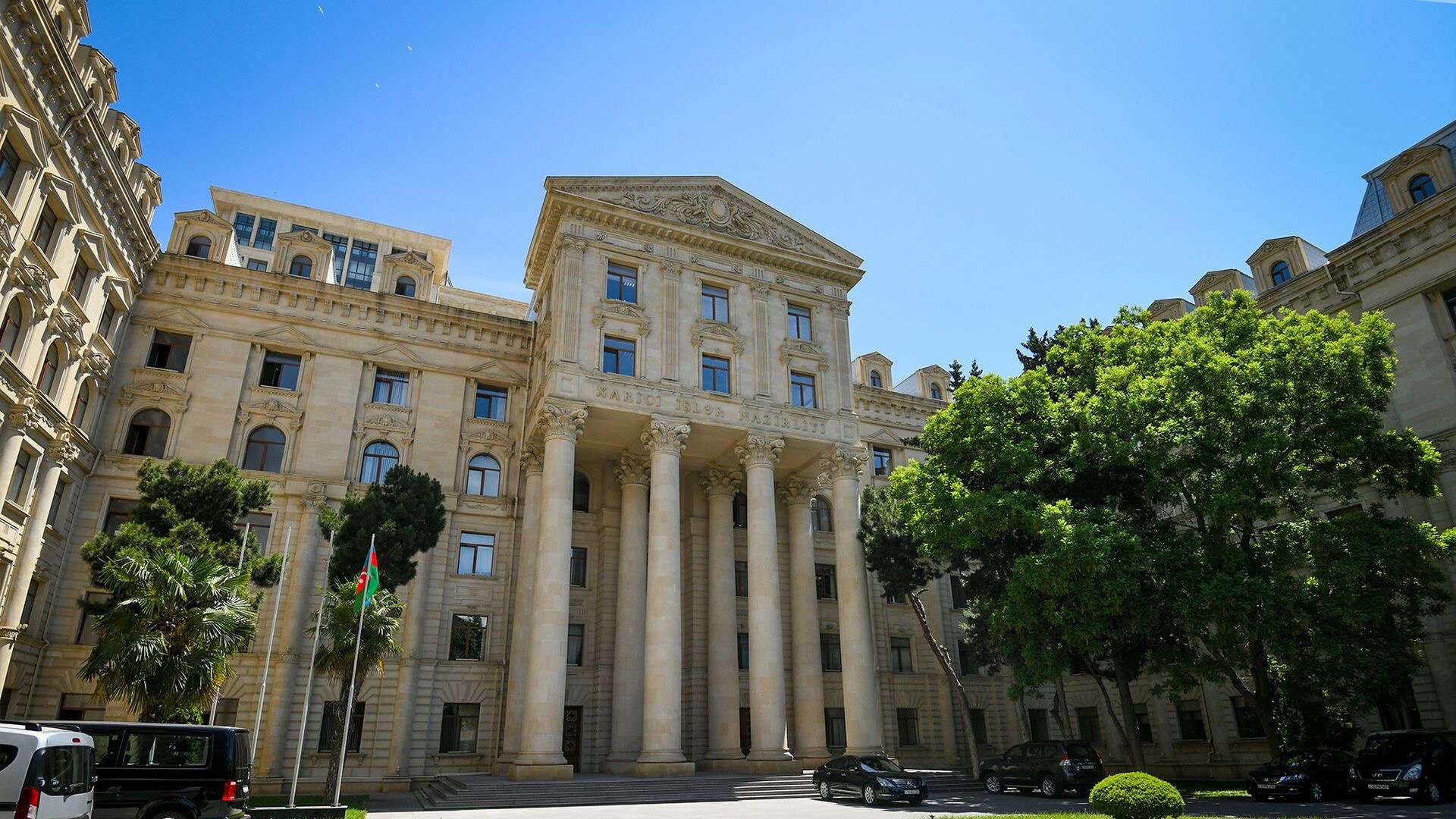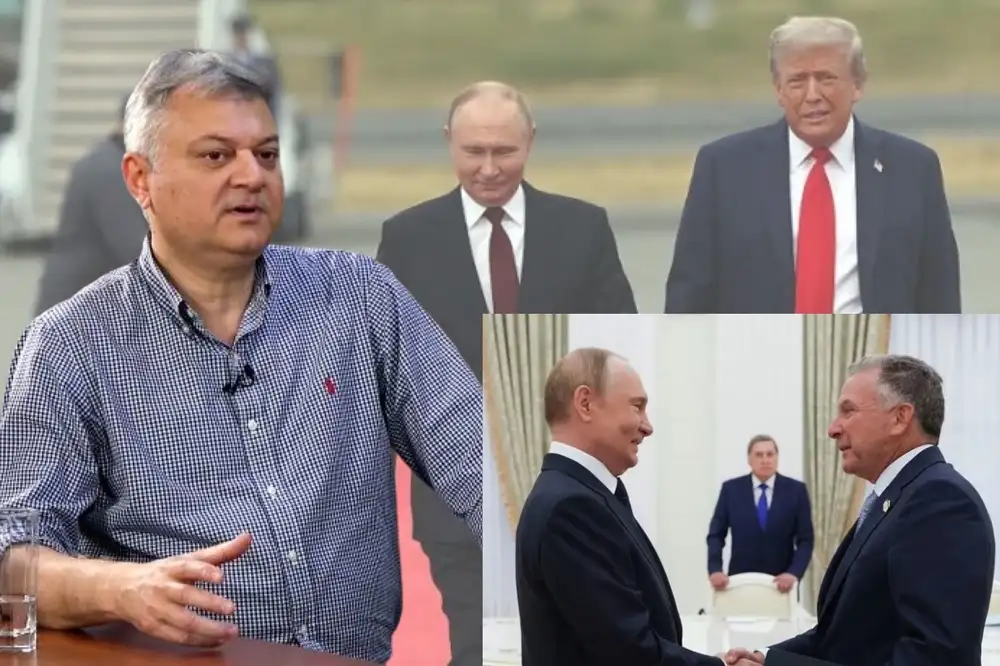The Ministry of Foreign Affairs of Azerbaijan issued a statement addressing blocking the Lachin Corridor, the Aghdam-Stepanakert road, the Armenian-Azerbaijani negotiations, their cancellation, and other issues.
In particular, it is said in the statement.
"Today, efforts to establish a lasting peace between Azerbaijan and Armenia face severe challenges due to the escalation of tensions and the deliberate policy of revanchism on the part of Armenia. Despite its first failure in December 2022, Armenia is again trying to turn the UN Security Council into a political, military, and information-oriented manipulative campaign tool.
... Armenia's appeal to the UN Security Council regarding the "deteriorating humanitarian situation" in the region and baseless statements about the "ongoing blockade" comes when Armenia deliberately and purposefully obstructs a balanced, international law-based, and acceptable process through its global partners—efforts to find a solution. As is well known, the facts of extensive abuses of the Lachin road by Armenia in the last three years have led to the need for legal measures by Azerbaijan to establish a border checkpoint to ensure security and order on its border. Although Armenia tried to portray these efforts as a "blockade" and asked the international court to decide on eliminating the checkpoint, the court unanimously rejected the claim on July 6.
Armenia has yet to come to terms with the fact that it is deprived of the opportunity to provide for the needs of the armed forces that have been wholly withdrawn from the territory of Azerbaijan, as well as the possibility of illegal exploitation of Azerbaijan's natural resources. That is why Armenia started a propaganda campaign worldwide, creating several military and other obstacles against the regular operation of the border checkpoint and refusing different routes, for example, the Aghdam-Khankendi road.
Recently, after a series of intensive consultations, an agreement was finally reached on delivering humanitarian supplies to Karabakh by different routes and organizing a meeting between the special representative of Azerbaijan and representatives of the local Armenian population. To meet the residents' needs and create conditions for the delivery of humanitarian goods through the International Committee of the Red Cross (ICRC), it was necessary to remove the physical obstacles that were placed to prevent the use of the Aghdam-Khankendi road. This was followed by activating the ICRC's use of Lachine Road within 24 hours. All parties, including the Russian peacekeeping force and the ICRC, were ready to implement this agreement.
Regarding the second issue, an agreement was reached to hold a meeting in Evlakh between Azerbaijan's special representative and local Armenian residents' representatives. However, on August 5, 2023, Armenia, at the last moment, abandoned the two agreements it had reached, citing political motives, illegal conditions, and various justifications. What Armenia demanded from the international community in general, and the UN Security Council in particular, could be achieved a few days ago thanks to the support of partners, including members of the Security Council. It did not happen only because of Armenia's refusal. If Armenia and the so-called "regime" under its jurisdiction followed the agreement, the issue would be resolved in early August, providing an acceptable framework for delivering humanitarian goods to the people of the Karabakh region and facilitating the routes of people, interests, and vehicles. Therefore, despite the intense interaction of Azerbaijan with the Russian Federation, the USA, the European Union, and the ICRC to find ways out of this situation, there should be no doubt that Armenia is deliberately hindering these diplomatic efforts.
Armenia's appeal to the UN Security Council is a part of this campaign. In this respect, it deals a severe blow to the efforts of the parties involved, including the members of the Security Council. In addition, in recent weeks, the Armenian armed forces illegally stationed on the territory of Azerbaijan have intensified military-technical and other military construction activities, which is a severe violation of international law, as well as of Armenia's obligations under point 4 of the tripartite statement of the leaders of Azerbaijan, Russia, and Armenia on November 10, 2020. is.
The use of electronic warfare equipment illegally located in the sovereign territories of Azerbaijan is of particular concern. In recent weeks, together with the civilian planes of "Azerbaijan Airlines," the aircraft of foreign countries have also been subjected to electronic interference, which poses a severe threat to their safety. In the sovereign territories of Azerbaijan, where the Russian peacekeeping troops are temporarily stationed, along with the military engineering works and the activation of illegal activities, the last few days, a large number of weapons, military equipment, and personnel have been concentrated in an attempt to carry out another military adventure on the undemarcated state border.
The above facts confirm the practices characteristic of Armenia in the last 30 years, such as falsification of negotiations, political, military, and other provocations at each stage of the talks to avoid their previous obligations and fulfillment at the last moment. At the same time, such actions show that Armenia has not stopped its territorial ambitions toward Azerbaijan, and verbal recognition of Azerbaijan's territorial integrity contradicts its efforts.
After the 2020 war, Azerbaijan offered peace to Armenia based on mutual recognition, respect for sovereignty, territorial integrity, and inviolability of each other's borders. Azerbaijan also pursues a policy of reintegration of Armenians living in the Karabakh region as equal citizens, ensuring their rights and freedoms provided for by the constitution of Azerbaijan and all relevant international mechanisms. At the same time, showing its loyalty to all these points, Azerbaijan reserves the right to protect its sovereignty and territorial integrity by all legal means provided by the UN Charter and other universal international law documents.
At this critical stage, more than ever, it is essential to have a clear understanding of the existing risks and an adequate response of the international community to Armenia's provocations, to overcome the difficulties faced by the process of regulating interstate relations between Armenia and Azerbaijan, and to ensure the political, legal, and social support of the residents of Armenian origin in Azerbaijan. for reintegration into economic frameworks. It is essential to ensure that the historic opportunity for establishing stable peace in the region is not wasted," the statement said.




















